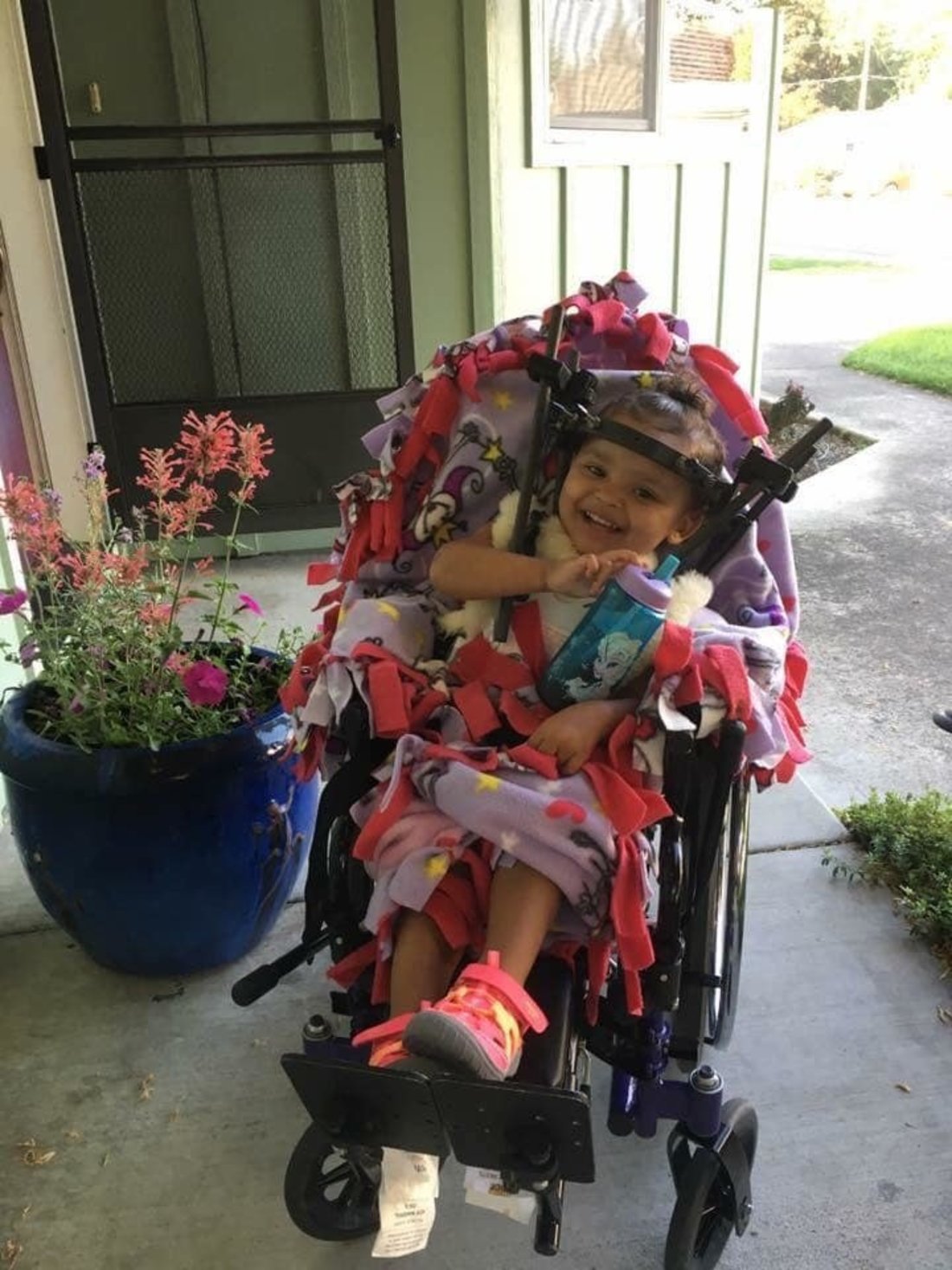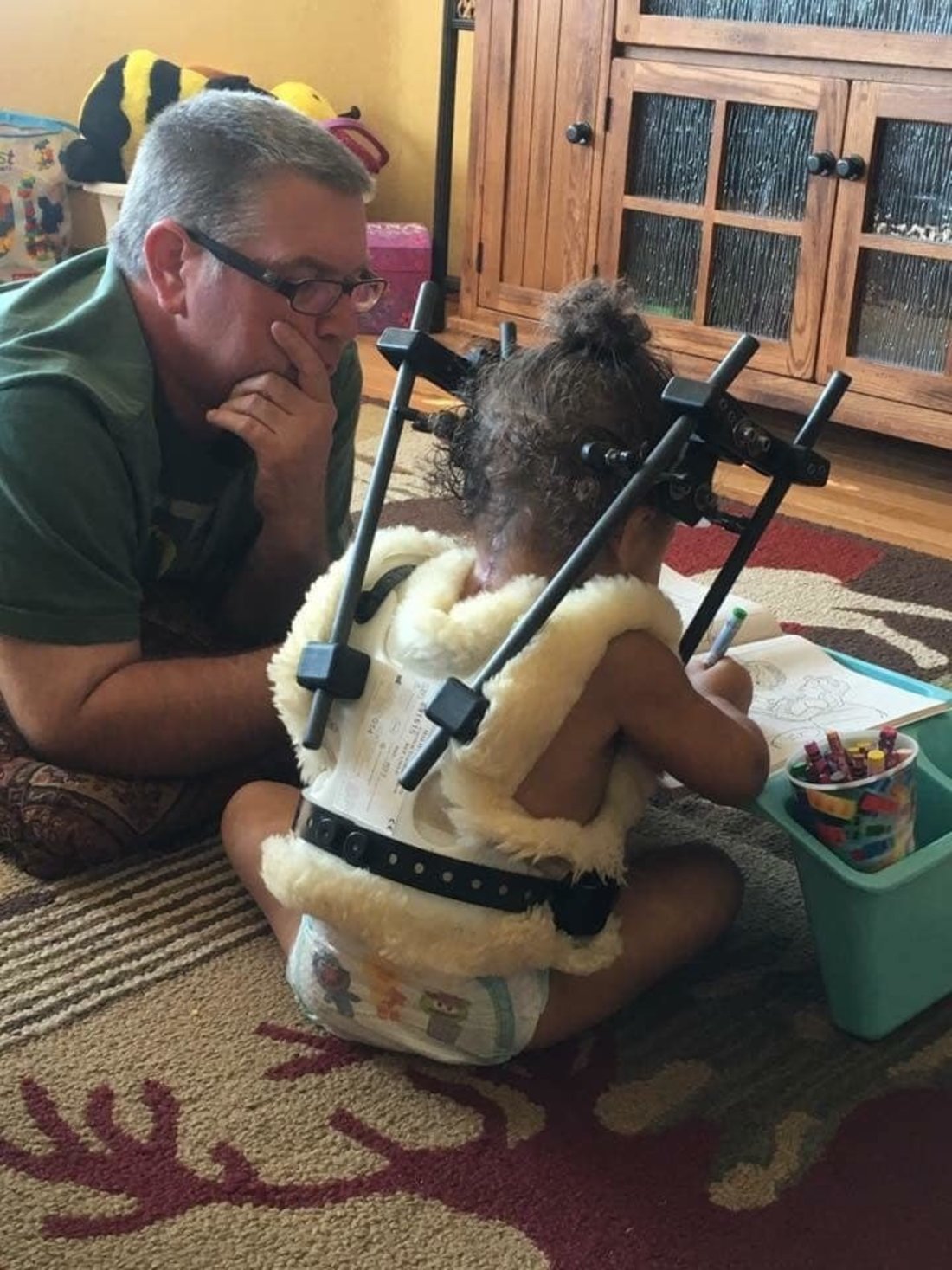
Watching your child reach milestones as they grow is always exciting for parents. But there's one stage moms and dads might not want to be so eager for their kids to reach: turning the car seat from rear-facing to forward-facing as soon as they hit 2 years old.
While we've long been told that's the acceptable age, one mom's story proves that might not be the case. While Tanya Bender thought she was was doing what was best for her daughter when she turned her car seat around on the girl's second birthday, she now wants other parents to know why that might have been a mistake.
Her daughter, Aniyah, was 2 years old when she was in a car crash.

Bender believed she was doing what was safest when she put her 2-year-old in a forward-facing car seat, but a terrible accident proved her wrong. She now wishes that she hadn't been in such a rush to move her before she outgrew the height and weight limits.
"Her seat was correctly installed in the car according to the car seat requirements and the law now," she wrote on Facebook. "If she had been rear facing she would have not suffered any injury at all."
The toddler was internally decapitated due to the crash's impact and her car seat position.

Internal decapitation occurs when the ligaments in the neck that attach the skull to the spine are severed, and it's rare to survive. According to a 2005 study at a Philadelphia hospital, only 31% of children who had this type of injury lived.
Bender shared that Aniyah was internally decapitated at her C1 vertebra during the accident and is lucky to be only partially paralyzed. "She will never be able to do sports or tumbling, riding horses or cheerleading even," the mom wrote at the time.
Children are at a higher risk for internal decapitation during car crashes than adults because their bodies are still developing. Not only do babies' heads make up 25% of their total body weight compared to an adult's 6%, but also their necks and spines are much weaker to begin with.
"A toddler's vertebrae are connected via cartilage rather than ossified bone. Those connections are called synchondroses, which are slowly closing over time," Car Seats for the Littles explained on its website. "Before age two, none of the cartilaginous spaces have completed ossification. Those pieces of cartilage have the ability to stretch up to two inches. Yet only 1/4 inch stretch is enough to rupture the spinal column, resulting in paralysis or death."
Aniyah's mom wants parents to see what can happen when you go by the 'minimum' requirements.

Just because it's advised to keep your child rear facing until at least 2 years old doesn't mean that parents should blindly flip their kids' car seats on their second birthday. The National Highway Traffic Safety Administration recommends that kids remain in a rear-facing car seat until they reach the top height or weight limit allowed by your car seat's manufacturer. And in 2011, the American Academy of Pediatrics updated its guidelines to match the NHTSA, stating that parents should "keep their toddlers in rear-facing car seats until age 2, or until they reach the maximum height and weight for their seat."
Benjamin Hoffman, a professor of pediatrics at Oregon Health & Science University School of Medicine in Portland and a child injury prevention specialist, broke down for Forbes exactly why a rear-facing car seat can make the difference for toddlers and their developing necks. "Facing forward, the head and neck are thrown forward violently in a crash, and the same forces that can lead to whiplash in an adult can actually cause the spine of a young child to separate and injure the spinal cord," he said.
But when a child sits in a rear-facing car seat, the impact's force is distributed differently. "If the child is rear-facing, all of the force is spread over the entire back of the child, allowing it to be absorbed by the seat, and cradling the head and neck to prevent injuries to that most vulnerable part of our body."
By 4 years old, Aniyah seemed to be making a miraculous recovery — and hopefully her story saves others.

After sharing Aniyah's story in 2018, Bender's post went viral, with others reminding their mom friends not to be so fast to flip car seats if their kids haven't surpassed the height and weight limits. As mom Danielle Waldner wrote on Facebook before resharing the post, "This is why it is so important to rear face for as long as possible."
Now, 8 years old, Aniyah seems to be thriving.
That's right, Aniyah is 8 now, and appears to be happy, strong, and thriving. Still, her mom's cautionary tale stands. Everyone expected her story to go a different way, but by some miracle she survived. She was the exception.
Hopefully, thanks to her mom's willingness to share, far fewer children will end up in the unimaginable situation that this family faced, and despite all odds, overcame.




